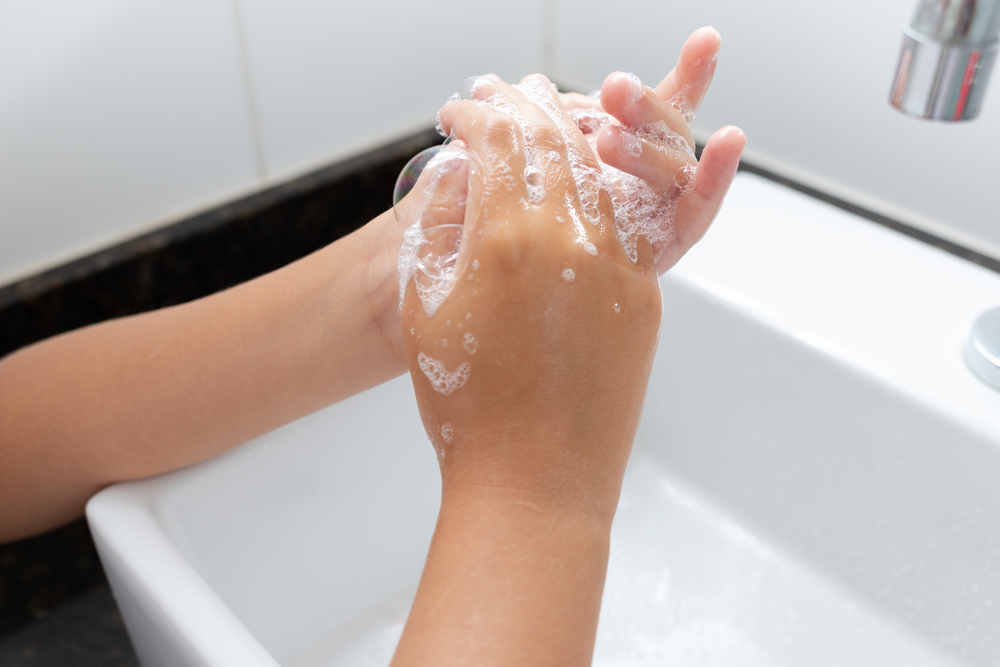Last week Merrick Life wrote about coping with coronavirus anxiety. For parents and carers, one of the biggest causes of concern at this time will be how we think our children are reacting to their world being turned upside down.
While for some children an early start to the Easter holidays and more time at home with family may seem like fun, many others will have concerns about these sudden changes to their routine.
The most important thing we can do for children at this time is to be there for them. And to talk sensibly with them about the concerns they have.
Here are five ways to help children with coronavirus anxiety.
Reassure them
With wall-to-wall news coverage, parent/s working from home (or maybe not if they’re key workers) and schools closed, it’s understandable if children are concerned.
Recent developments have been enough to unnerve the most steadfast of adults. For children with a slender grasp of world events it can be bemusing. Taking the time to reassure them and explaining simple steps they can take to stay healthy is time well spent. Be mindful of any changes in mood and be understanding and, as much as possible, be there for them.
Remember, children look to adults for comfort when they are distressed and will take a lead on how to view things from you.
Keep routine and structure
This is a time of unprecedented change. Schools are closed, hobbies, sporting clubs and seeing their pals have had to be put on ice. All these things combined are enough to set alarm bells ringing for many children. It is important to create a new routine. This helps children remain grounded, feel stable and that they have something to rely on.
Schools have been very good in arranging work or lessons to be completed remotely, so a new learning routine can be established. As they can’t go to their favourite sports club or drama practice, make the time within your schedule to do something fun together on a regular basis. Show them you really are that good at football – or bust out some moves on Let’s Dance.
Encourage them to share their worries
It’s important for us all at this time that we feel able to share our worries and concerns. Right now, no one has all the answers. But by encouraging children to talk about what concerns them – it might be not being able to see grandparents and other family members, the fear of missing out on school or of getting ill – you are demonstrating that it’s ok to have concerns and feel a little overwhelmed. We can reassure children by showing we understand their concerns. Reassure them that lots of people are working very hard to make the situation better and while this all seems very strange now; in time it will pass.

Washing hands properly is something children can do to help keep themselves safe
Share your own coping skills
Often as parents we feel we must have all the answers. That’s just not the case, especially in unprecedented times like these. Children, just like adults, feel empowered when they know how to better take care of themselves. So talk about the necessity of washing your hands carefully, what social distancing means and why it’s so important that everyone does their best to limit their journeys for this time.
It’s natural in periods of uncertainty for our own anxieties to rise and fall, so it’s important we model the way with children. Talk with them about their own concerns when you’re feeling calm and able to explain unemotionally what’s happening.
Limit their access to news
It’s probably impossible to shield our youngsters from everything that is going on with coronavirus. But exposing them to a constant stream of the negative will do nothing to calm their fears. For primary school children limiting their news to Newsround, which tailors its reports for that age range is a good idea. Older children will want to seek out their own information. Just remember, nothing was ever made better by allowing 24/7 new s consumption either through TV, radio or social media.
There are many great resources for parents on spotting the signs of anxiety in children and doing something to help. Try the NHS, Young Minds and Mental Health Foundation.
There’s also this useful guide from Rehab4addiction about guarding mental health during the pandemic.
Digital education platform FutureLearn and its partner the University of Reading offer the Covid-19: Helping Young People Manage Low Mood and Depression course. It’s aimed at young people themselves, their parents and carers, or anyone who has contact with young people during the coronavirus pandemic. Click the link to find out more https://www.futurelearn.com/courses/low-mood-during-covid-19
Have you got anxieties about coronavirus? Read on.
I WILL BE ETERNALLY GRATEFUL. AMANDA MAKES YOU FEEL LIKE YOU ARE HER ONLY CLIENT AND HOLDS YOUR HAND TO GUIDE YOU THROUGH














